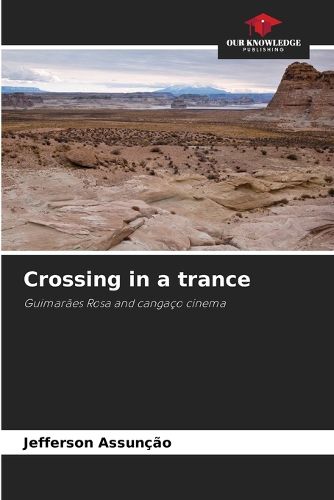Readings Newsletter
Become a Readings Member to make your shopping experience even easier.
Sign in or sign up for free!
You’re not far away from qualifying for FREE standard shipping within Australia
You’ve qualified for FREE standard shipping within Australia
The cart is loading…






The aim of this book is to study, in a comparative analysis, the relationship between Joao Guimaraes Rosa's imagistic language and cangaco cinema, based on a film that is said to have been directly influenced by the writer: Deus e o diabo na terra do sol (God and the Devil in the Land of the Sun) (1964), by Glauber Rocha. To this end, concepts from Literature, Cinema and Philosophy will be used, fields through which this research will pass, as will be described below. It is known that Guimaraes Rosa did not like a certain philosophy, as he navigated other logics, far from what he calls, in a letter to his Italian translator, Edoardo Bizzarri, "the Cartesian shrew" or, in a conversation with the German literary critic, Guenter Lorenz, "the curse of language". In this sense, the philosophical apparatus used in this work goes beyond and constitutes an immense critical legacy to Cartesianism.
$9.00 standard shipping within Australia
FREE standard shipping within Australia for orders over $100.00
Express & International shipping calculated at checkout
The aim of this book is to study, in a comparative analysis, the relationship between Joao Guimaraes Rosa's imagistic language and cangaco cinema, based on a film that is said to have been directly influenced by the writer: Deus e o diabo na terra do sol (God and the Devil in the Land of the Sun) (1964), by Glauber Rocha. To this end, concepts from Literature, Cinema and Philosophy will be used, fields through which this research will pass, as will be described below. It is known that Guimaraes Rosa did not like a certain philosophy, as he navigated other logics, far from what he calls, in a letter to his Italian translator, Edoardo Bizzarri, "the Cartesian shrew" or, in a conversation with the German literary critic, Guenter Lorenz, "the curse of language". In this sense, the philosophical apparatus used in this work goes beyond and constitutes an immense critical legacy to Cartesianism.